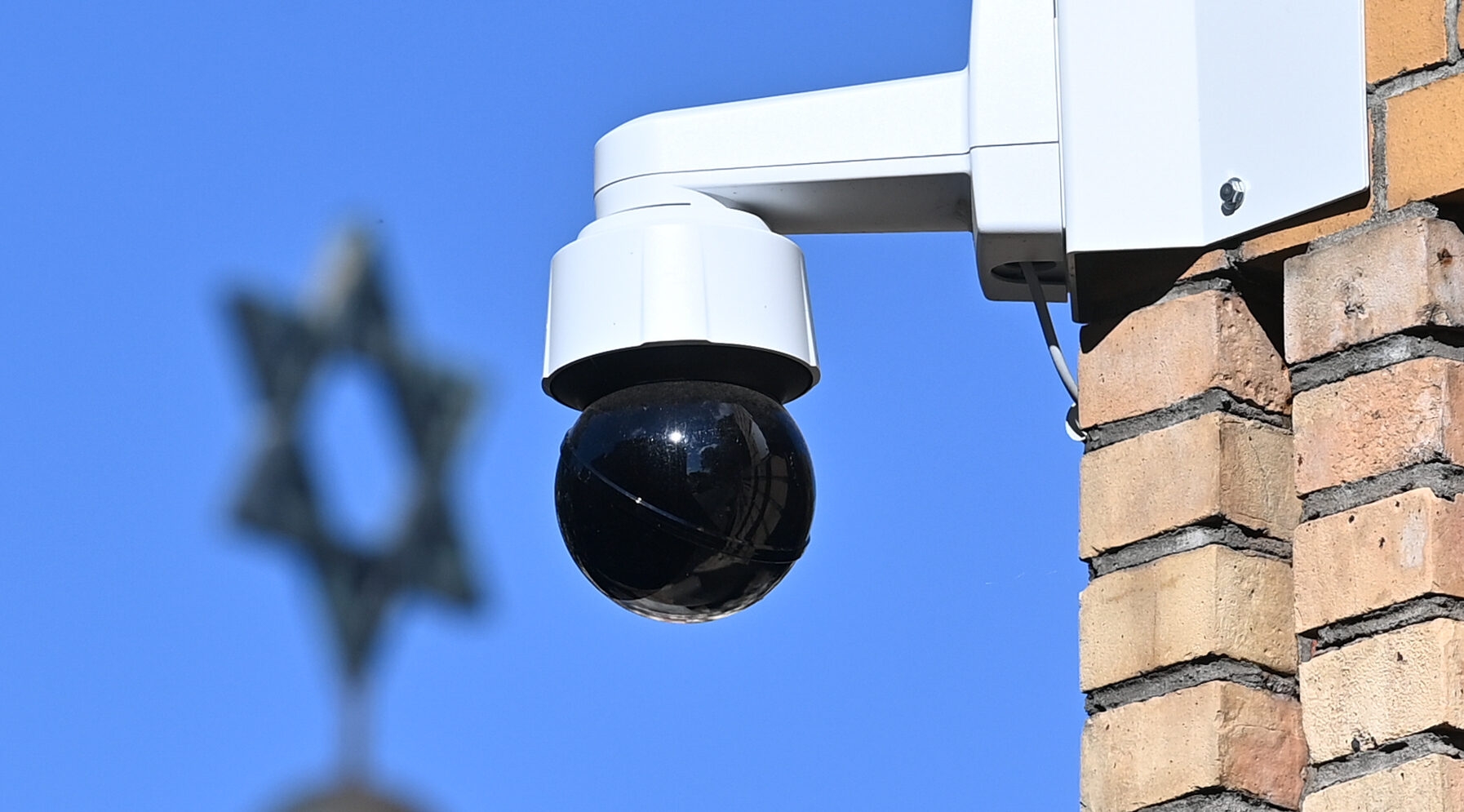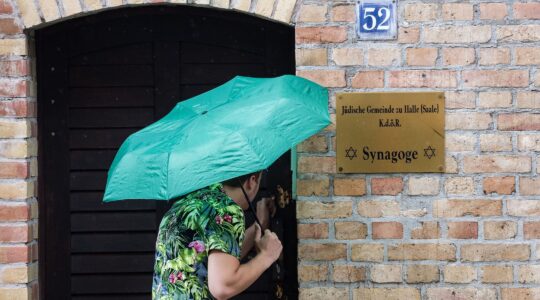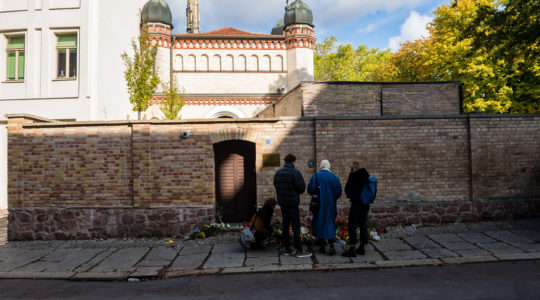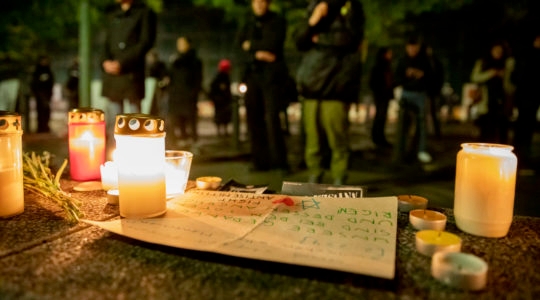BERLIN (JTA) — One year ago today, the anti-Semitic and racist attack on Jews in a synagogue in Halle, Germany made us all hold our breath.
A terrorist armed with a shotgun attempted to gain entry into a sacred place of worship where about 50 people were celebrating Yom Kippur, the holiest day on the Jewish calendar. Fortunately, unlike in other recent incidents involving extremists attacking Jewish houses of worship, the perpetrator was unable to enter and inflict mass casualties.
One year later, Jews in Germany continue to struggle with anti-Semitism as Jewish communal life — miraculously — continues to thrive.
Even post-Holocaust, there is a continuity of anti-Semitism and hate in Germany over the past decades, and painfully, Halle is another link in the long chain of anti-Semitic attacks and rhetoric: arson attacks on a Jewish retirement home in Munich in 1970, on the Lübeck synagogue in 1994, on a synagogue in Duesseldorf in 2000 and on the Mainz Synagogue in 2010. There was a mail bomb attack on Jewish leader Heinz Galinski in 1975. And physical assaults on a rabbi in Berlin in 2012 and just last week on a Jewish student in Hamburg outside of a synagogue. The list spans decades, locations and types of Jews and congregations targeted.
And yet there is a vibrant Jewish life and growing Jewish community in Germany, which stands in stark relief to these attacks.
Data by the EU Fundamental Rights Agency confirms that Jews are under constant threat: 41% of Jews in Germany experienced some form of anti-Semitic harassment in the year before the study on experiences and perceptions of anti-Semitism was published in 2018, an increase from 25% in 2012. Reporting by the anti-Semitism monitoring organization RIAS corroborates this rise in anti-Semitism: RIAS recorded 410 anti-Semitic incidents in Berlin alone in the first half of 2020, near an all-time high.
Jews, of course, are not the only targets of far-right extremist violence. The Halle attacker also expressed racist, anti-Muslim, anti-immigrant and misogynist beliefs and ended up deliberately shooting at others as well, killing two people after he couldn’t gain entry into the synagogue. A few months before the Halle attack, a right-wing extremist murdered district president Walter Luebcke for being welcoming to refugees. Just four months after Halle, ten people were murdered in a racist shooting attack in Hanau.
Government and law enforcement officials often describe anti-Semitic and racist attacks as “lone wolf” acts carried out by individuals not representing any organized hate group or movement, but it is apparent that these individual attacks are part of the bigger picture of persistent anti-Semitism and hate even if they are not individually connected.
Jewish life in Germany is often viewed solely within the lens of past and current anti-Semitism, or the Holocaust, or when there are sudden flareups in the Middle East conflict. But the reality shows Jewish communal life defying the odds and thriving.
Even during the COVID-19 pandemic and its accompanied anti-Semitic rhetoric and imagery, many positive actions and activities in Jewish life in Germany have taken place: the Jewish Women Empowerment Summit, Jewish summer camps, Pride Shabbat and a Jewish student fundraiser for the owners of a kebab shop where a person was killed during the Halle synagogue attack last year, who have been adversely affected by the pandemic.
People in need during the pandemic have received it from Germany’s Jewish Welfare Organization and the political Jewish umbrella organization, the Central Council, which just had its 70th birthday. In other words, “Our existence is our resistance,” as Ruben Gerzcikow, vice president of the European Union of Jewish Students and Jewish Student Union of Germany, said at the Halle commemoration this week organized by the Jewish organization Base Berlin.
Next year, German Jews will celebrate 1,700 years of Jewish life in Germany. This is a meaningful milestone, but the continuity of Jewish life in Germany should not be taken for granted.
Rabbinical student and Halle survivor Naomi Henkel-Guembel warned in her testimony at the trial of the Halle perpetrator: “They [anti-Semites, racists, white supremacists] are growing bigger and bigger, because we as society are turning a blind eye at what led up to these events.” She’s right: Even in Germany, where the government has repeatedly pledged to protect the Jewish community, we must recognize current threats to democracy and freedom and continue to be vigilant against them.
One year after Halle, we cannot let attacks fueled by anti-Semitism and hate become the norm. We cannot allow Jews to continue to be harassed and feel unsafe on the street, at the synagogue or online. And we must continue to urge German authorities and civil society to take a strong line against anti-Semitism and hate, so that we are on the right side of history.
JTA has documented Jewish history in real-time for over a century. Keep our journalism strong by joining us in supporting independent, award-winning reporting.







